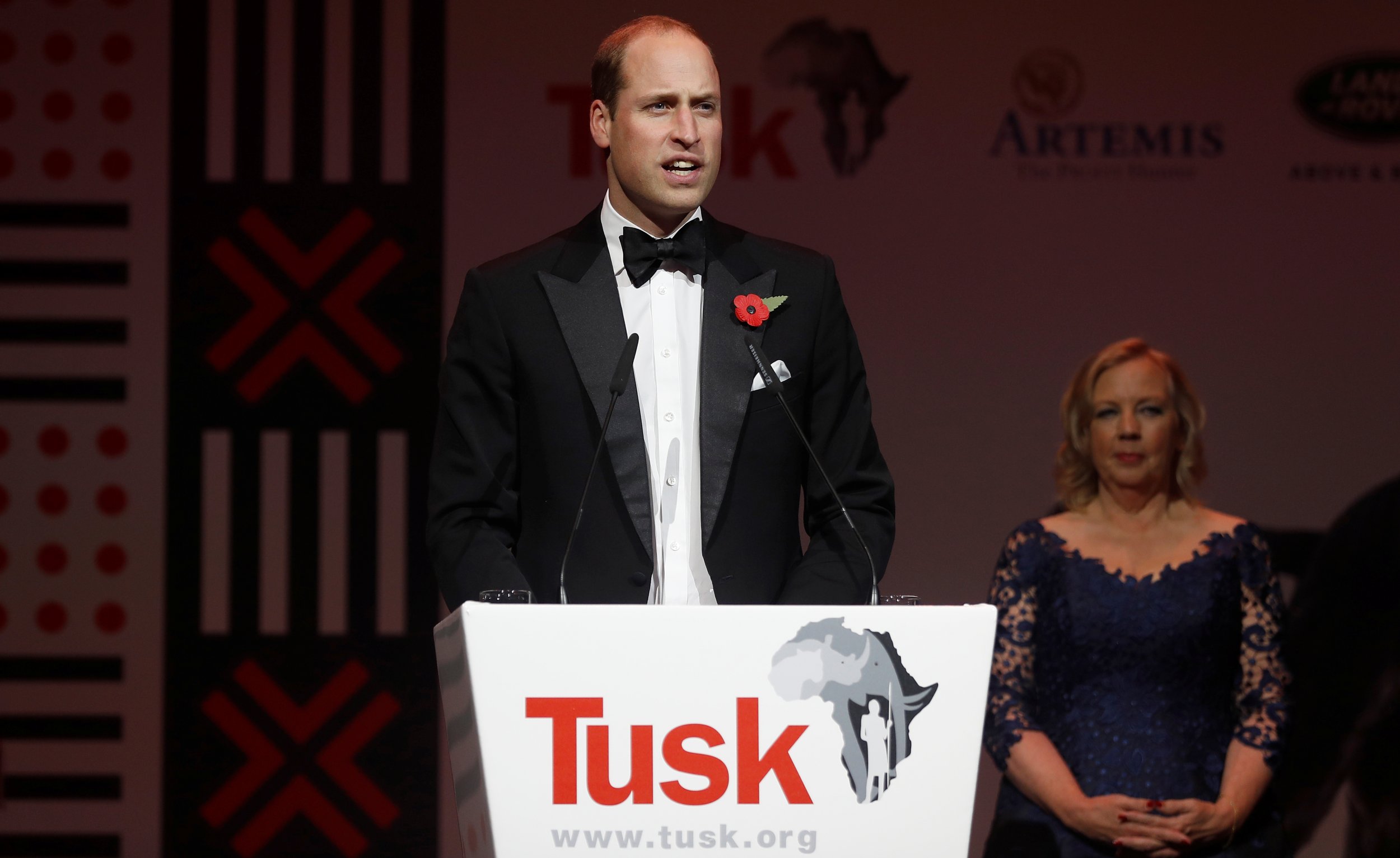
Prince William, second in line to the British throne, has warned that exploding populations around the world will put "enormous pressure" on wildlife unless it is properly managed.
"In my lifetime, we have seen global wildlife populations decline by over half," the prince, who is known as the Duke of Cambridge, said at a gala dinner for the Tusk Trust charity in London, the Telegraph reported.
"We are going to have to work much harder," the duke continued, "and think much deeper, if we are to ensure that human beings and the other species of animal with which we share this planet can continue to coexist.
"Africa's rapidly growing human population is predicted to more than double by 2050—a staggering increase of three and a half million people per month.
"There is no question that this increase puts wildlife and habitat under enormous pressure.
"Urbanisation, infrastructure development, cultivation—all good things in themselves, but they will have a terrible impact unless we begin to plan and to take measures now."
The duke said new ideas were needed on how to manage water resources and the grazing of animals, in case overcrowding ends up having a "catastrophic effect" on wildlife.
A report from WWF and the Zoological Society of London published in 2016 found that the world was on course to lose two-thirds of its wild animals by 2030, with the destruction of wilderness for agriculture, logging and poaching all major contributing factors, The Guardian reported at the time.
In 2010 William's father, Prince Charles, who is first in line to the British throne, warned that the earth could not "sustain us all," and that "in the next 50 years, we face monumental problems as the figures rocket," according to a separate Telegraph report.
Charles said at the time that "it would certainly help if the acceleration slowed down, but it would also help if the world reduced its desire to consume."
And he praised the success of family planning services: "Interestingly, where the loans are managed by the women of the community, the birth rate has gone down. The impact of these sorts of schemes, of education and the provision of family planning services, has been widespread.
"I fear there is little chance these sorts of schemes can help the plight of many millions of people unless we all face up to the fact more honestly than we do that one of the biggest causes of high birth rates remains cultural," Charles added.
Uncommon Knowledge
Newsweek is committed to challenging conventional wisdom and finding connections in the search for common ground.
Newsweek is committed to challenging conventional wisdom and finding connections in the search for common ground.
About the writer
Josh is a staff writer covering Europe, including politics, policy, immigration and more.
To read how Newsweek uses AI as a newsroom tool, Click here.








